January 17, 2021 - Several years after the failure of European Coastal Airlines in Croatia, a new seaplane startup in Spain, Isla Air Express, bears a striking resemblance.
It is more than six years since modern aviation history was made on the island of Hvar, with the first scheduled seaplane flight in modern times in Europe, as a European Coastal Airlines Twin Otter touched down on the Adriatic just outside the harbour of Jelsa on August 27, 2014, following a 15-minute flight from Resnik, just next to Split Airport.
A new revolutionary era of Croatian travel was upon us - or so it seemed - and the excitement was palpable in Jelsa on that historic first day.
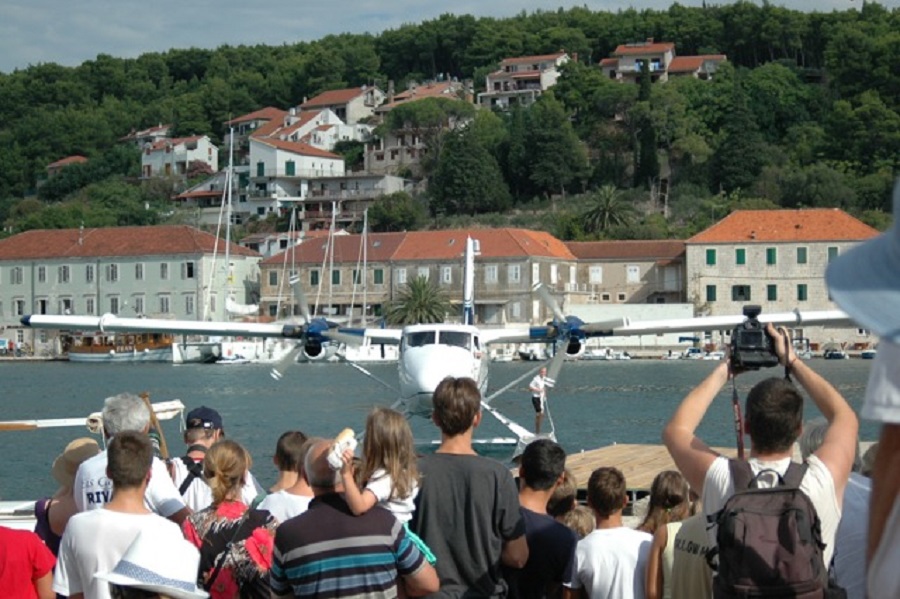
The project was fantastic, connecting the islands and the coast not only with each other, but also international destinations, with both Ancona and Pescara added, offering direct flights to downtown Split, for example.
And when the system worked, it was truly fantastic. I will never forget the joy of leaving my house to the Jelsa station and disembarking in downtown Split just 30 minutes later, or being able to attend a meeting in Novigrad in Istria via seaplane flights from Jelsa to Resnik and Pula and back, returning by 19:00 the very same evening.
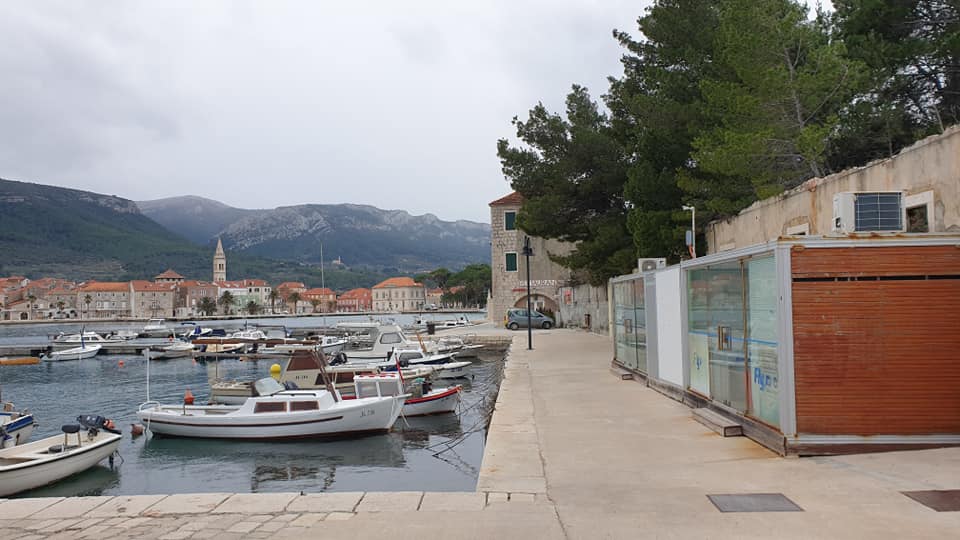
Sadly, the euphoric early days were short-lived. Initial problems with cancelled flights due to the weather or maintenance issues led to numerous tourists missing their flight home.
Everyone agreed that when the system worked, it was magnificent, a great addition to Croatia's luxury tourism offer. The maths didn't seem to add up to anyone who cast a glance at the numbers, but then what did we know? A one-way flight from Split to Jelsa was between 25 and 40 euro, for example, and the plane would go with just one passenger. Which it frequently did.
And then, in August 2016, just two years after operations had commenced - the bombshell. Leading Croatian news portal Index.hr published an article with supporting photographs questioning the safety of the planes. Soon after, the Croatian Civil Aviation Authority grounded the fleet in the middle of peak season, while an investigation was carried out. Shortly after, one plane was allowed to fly again briefly before being grounded again.
Soon after, ECA declared bankruptcy, leaving some staff and many suppliers unpaid. A lawsuit of 22.5 million euro was launched by ECA against the Croatian Civil Aviation Authority - a lawsuit which failed.
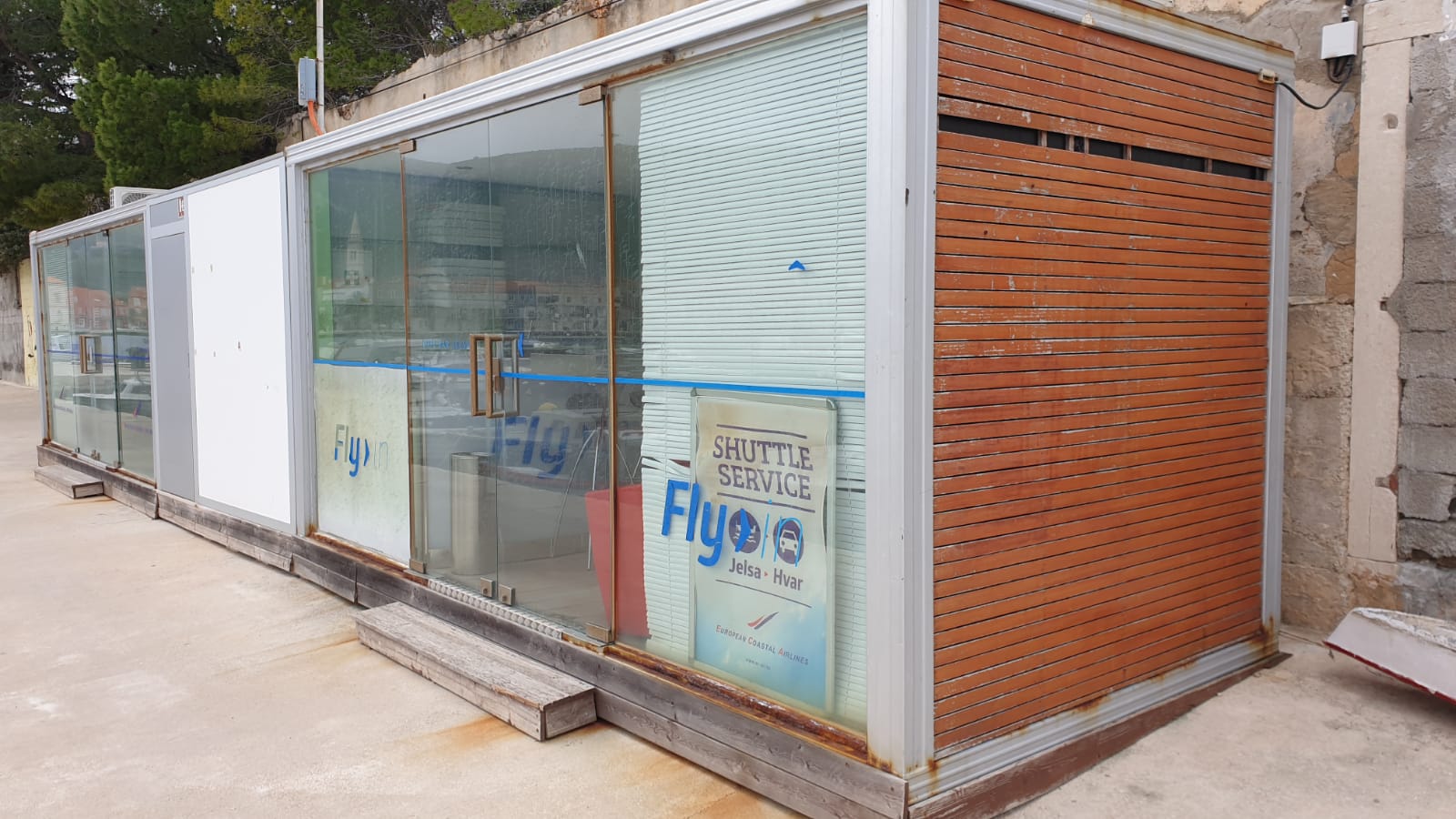
Jelsa today, home to the first scheduled seaplane flight in modern European aviation history. The office is still there, all the equipment still inside, promising shuttles to Hvar Town. Although a little rusty, passers-by could be forgiven for thinking this was an active seaplane operation closed for the day.
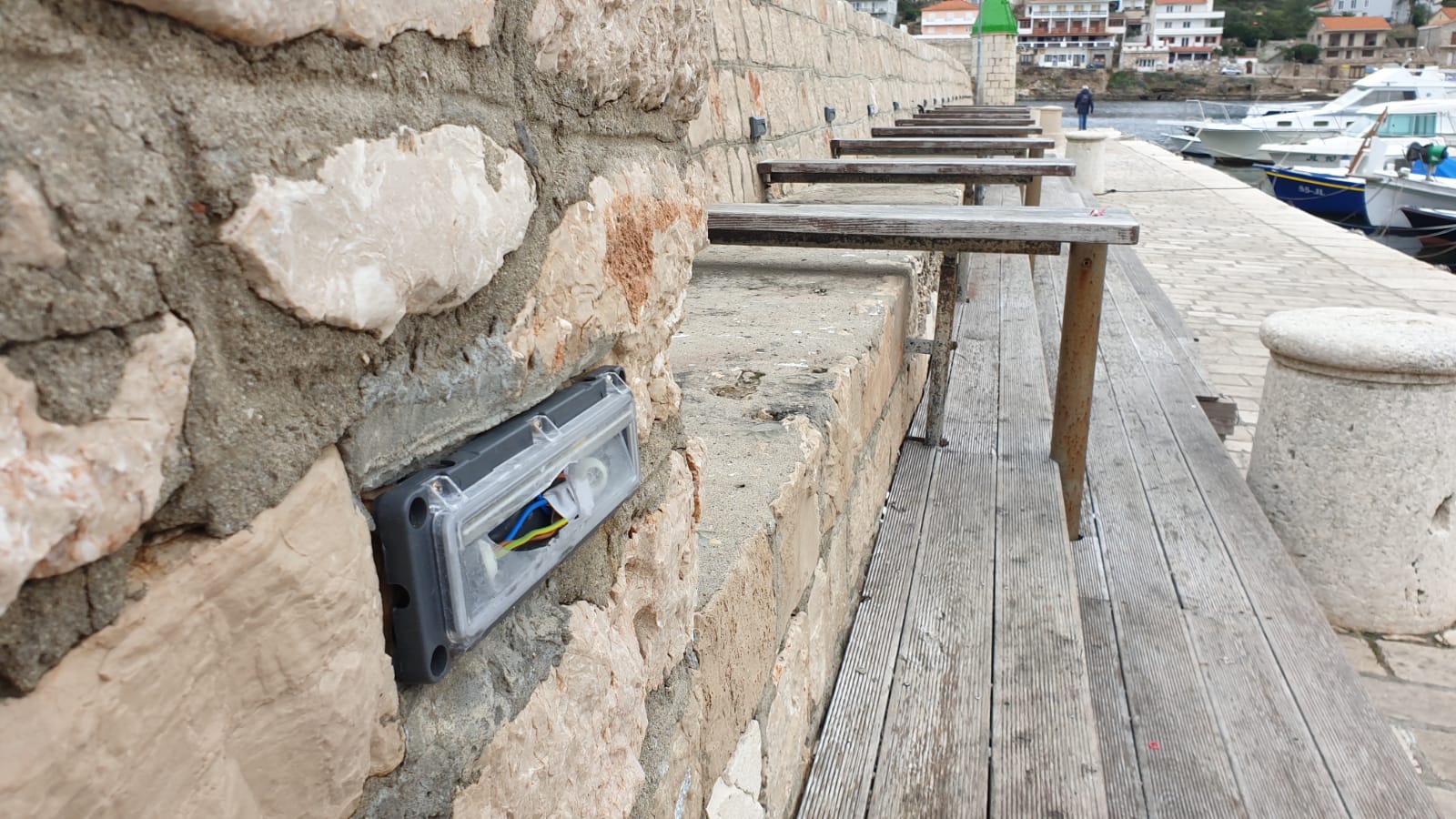
The weather-worn seating for the cafe which never opened still sports some lights on the wall behind, at least those which have not been damaged.
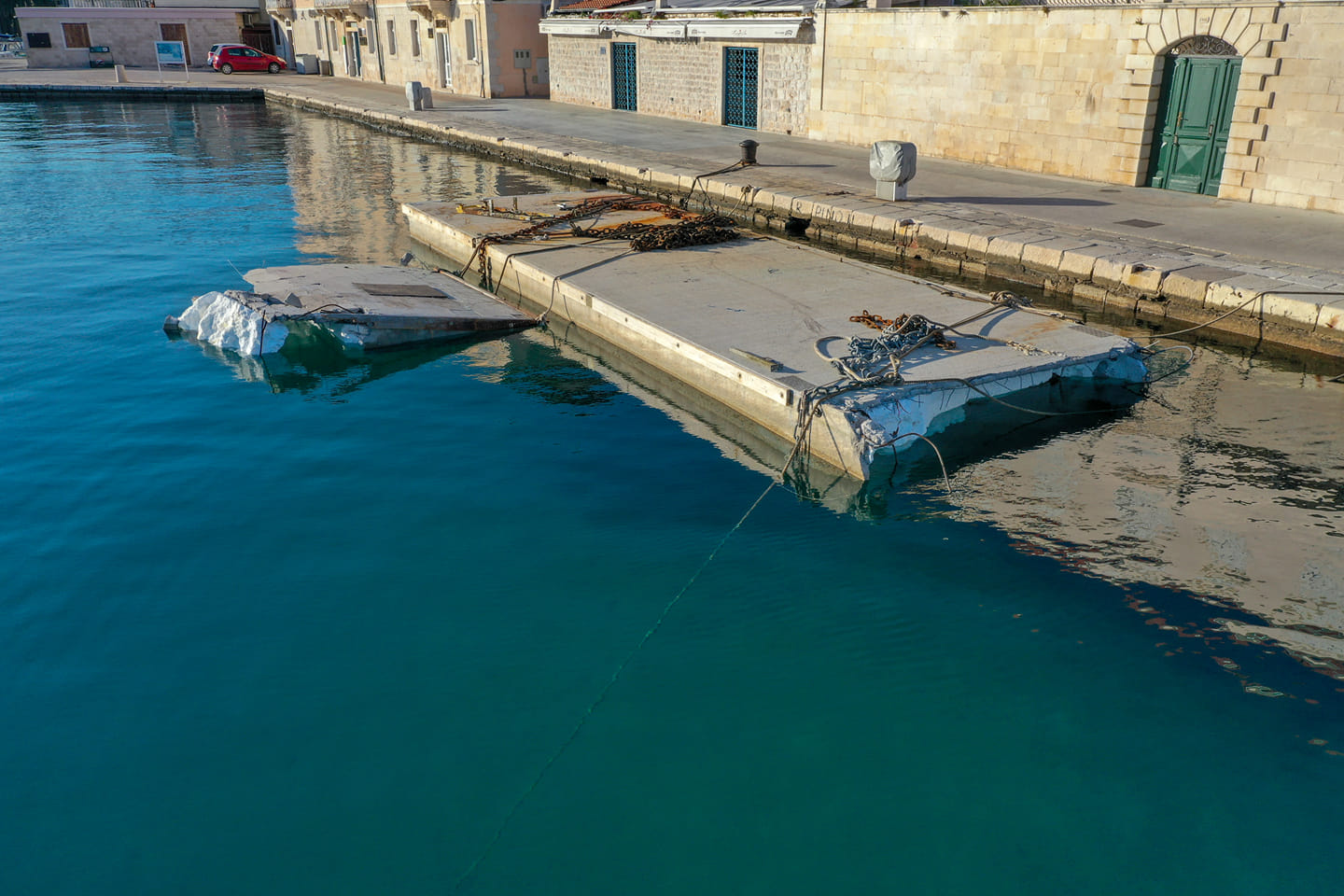
The pontoon, which was used several years ago to help passengers board the plane, caused something of an environmental crisis a few weeks ago. Having been moved to another location to be used by a private business, it came apart during a strong bura wind, releasing the styropor it contained into the Adriatic and a nearby beach. What remains of the pontoon is today attached to the harbour in the pretty Jelsa marina, its future fate uncertain.
A sad end to the story in Jelsa, which had looked so promising when it began.
(www.islaair.com screenshot)
But not, it seems, the end of the story for those behind European Coastal Airlines, or its co-founder and CEO Klaus Dieter Martin. A new seaplane operation, Isla Air Express, has been announced in Spain, with its website bearing photographs and footage of the ECA fleet in action.
In its initial phase, the Isla Air Express website promises several daily flights between Ibiza, Palma, Menorca and Formentera, before adding Valencia and Alicante in Phase 2.
Leading flight data specialists, ch-aviation, reported in more depth on the new startup in a recent article, Spanish seaplane project Isla Air Express takes shape.
According to Isla Air Express Director-General, Sergio Nuñez-Cacho, the company had secured financing and was pursuing a Maltese AOC. Two DNG-6-300 amphibians are currently receiving maintenance in Marseilles, and operations are due to start in June 2021, subject to any COVID-19 delays. Nuñez-Cacho named Klaus-Dieter Martin as the main shareholder of the company. According to ch-aviation:
Isla Air Express was officially registered in the Balearic Islands on April 3, 2019, ch-aviation found. It was established in Palma on December 13, 2018, to provide scheduled and non-scheduled air transport of passengers, luggage, mail, and merchandise of all kind. As principals are listed two German companies: RJB Aviation Consulting GmbH and European Sea Plane Service GmbH, the former co-owner of European Coastal Airlines.
Will the seaplanes succeed in Spain where they failed in Croatia? Time will tell.
Will anyone come and take away the abandoned mess that has been left in Jelsa and other Croatian destinations? That one is perhaps easier to answer.
Read more - Why Did Seaplanes Fail in Croatia and Will They Fly Again? Industry Expert Interview from November 2018.



